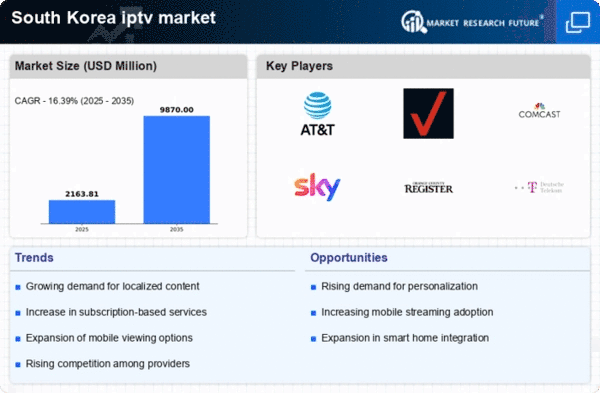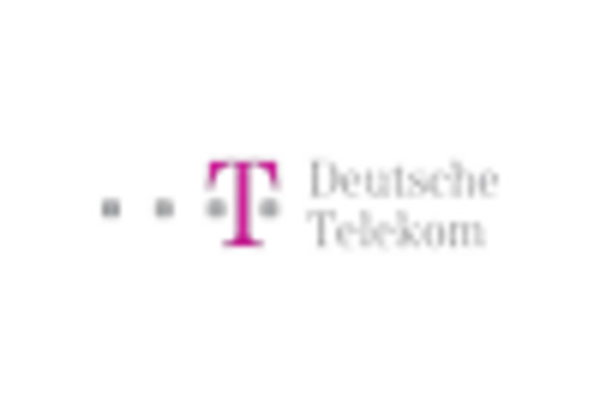Rising Internet Penetration
The increasing availability and accessibility of high-speed internet in South Korea is a crucial driver for the iptv market. As of November 2025, approximately 95% of households have access to broadband internet, facilitating seamless streaming experiences. This widespread connectivity allows consumers to engage with various IPTV services, leading to a projected growth rate of 12% annually in the sector. Enhanced internet infrastructure, including fiber-optic networks, supports high-definition content delivery, which is essential for attracting subscribers. Consequently, the iptv market is likely to expand as more users gain access to reliable internet services, enabling them to explore diverse content offerings.
Competitive Pricing Strategies
In the South Korean iptv market, competitive pricing strategies play a pivotal role in attracting and retaining subscribers. With numerous providers vying for market share, many companies are offering subscription plans that are more affordable than traditional cable services. As of November 2025, the average monthly subscription fee for IPTV services is around $25, which is significantly lower than the $50 typically charged for cable packages. This price advantage, coupled with promotional offers and bundled services, enhances the appeal of IPTV solutions. Consequently, the iptv market is likely to experience increased subscriber growth as consumers seek cost-effective alternatives to conventional television.
Shift in Consumer Viewing Habits
The evolving preferences of South Korean consumers towards on-demand content consumption significantly influence the iptv market. Traditional television viewership has declined, with a notable 30% drop in linear TV ratings over the past few years. This shift is attributed to the growing popularity of streaming platforms that offer flexibility and personalized viewing experiences. As consumers increasingly favor binge-watching and ad-free options, IPTV services are adapting by providing tailored content packages. This trend suggests that the iptv market will continue to thrive as it aligns with the changing dynamics of viewer behavior, potentially capturing a larger share of the entertainment market.
Regulatory Support for IPTV Services
The South Korean government has been actively promoting the growth of the iptv market through favorable regulatory frameworks. Initiatives aimed at fostering competition and innovation within the telecommunications sector have led to a more conducive environment for IPTV providers. Policies that encourage investment in infrastructure and content development are likely to stimulate market expansion. As of November 2025, the government has implemented measures to streamline licensing processes for new entrants, which could further diversify the offerings available to consumers. This regulatory support indicates a positive outlook for the iptv market, as it enhances the overall ecosystem for service providers and consumers alike.
Technological Advancements in Streaming
Technological innovations are transforming the iptv market in South Korea, enhancing user experiences and content delivery. The integration of artificial intelligence and machine learning algorithms allows for personalized content recommendations, improving viewer engagement. Furthermore, advancements in video compression technologies enable faster streaming with minimal buffering, which is crucial for maintaining viewer satisfaction. As of November 2025, the adoption of 4K and even 8K streaming capabilities is becoming more prevalent, attracting tech-savvy consumers. These technological enhancements suggest that the iptv market will continue to evolve, offering superior quality and convenience that meets the demands of modern viewers.
















